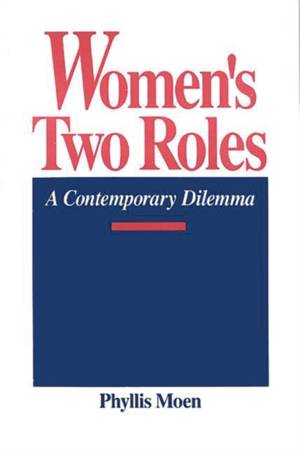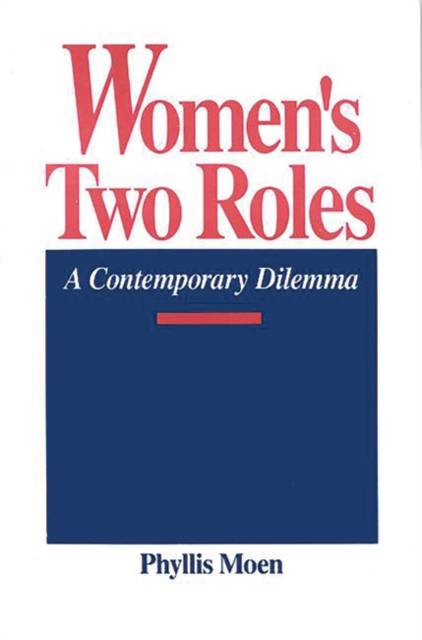
En raison d'une grêve chez bpost, votre commande pourrait être retardée. Vous avez besoin d’un livre rapidement ? Nos magasins vous accueillent à bras ouverts !
- Retrait gratuit dans votre magasin Club
- 7.000.000 titres dans notre catalogue
- Payer en toute sécurité
- Toujours un magasin près de chez vous
En raison de la grêve chez bpost, votre commande pourrait être retardée. Vous avez besoin d’un livre rapidement ? Nos magasins vous accueillent à bras ouverts !
- Retrait gratuit dans votre magasin Club
- 7.000.0000 titres dans notre catalogue
- Payer en toute sécurité
- Toujours un magasin près de chez vous
127,45 €
+ 254 points
Format
Description
Phyllis Moen describes the meshing of work and family roles not only as the private dilemma of individual women and their families but also as a public dilemma for the nation. This is an issue linked to deep apprehensions about families' and children's well-being, to demands for gender equality, to the outcry of some for a return to the traditional wife-as-homemaker role, and to growing concerns about labor market needs, productivity, and economic competitiveness.
Moen addresses the following central question: What are the major implications--for society, families, husbands, children, and women themselves--of the substantial and progressive movement of American women into the labor force? The dominant focus is on employed mothers of young children (those under the age of six) since it is these women who have experienced the greatest change and who encounter the greatest difficulty in reconciling employment demands and family responsibilities. An overriding theme is the unevenness of social change: American mothers of young children may be moving into the labor force in unprecendented numbers, but husbands, employers, and public policies are slow to accommodate this emerging reality. The issues raised are of concern to a broad spectrum of the educated public, but the book should be no less valuable to social scientists seeking to extend their knowledge of issues in this area of growing concern and can be used in courses relating to the sociology of the family, social problems, gender roles, and social policy.Spécifications
Parties prenantes
- Auteur(s) :
- Editeur:
Contenu
- Nombre de pages :
- 192
- Langue:
- Anglais
- Collection :
Caractéristiques
- EAN:
- 9780865691988
- Date de parution :
- 12-05-92
- Format:
- Livre relié
- Format numérique:
- Genaaid
- Dimensions :
- 152 mm x 229 mm
- Poids :
- 444 g

Les avis
Nous publions uniquement les avis qui respectent les conditions requises. Consultez nos conditions pour les avis.






